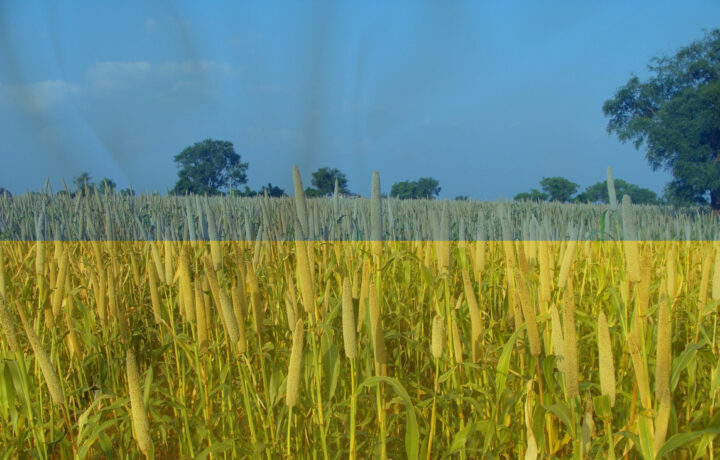Ukraine, a non-European Union (EU) member, is now completely dependent on alternative EU routes for grain exports after Russia resumed blocking Black Sea ports.
In retribution for a second Crimean bridge attack in mid-July, a year-long deal allowing Ukrainian grain exports via the Black Sea to assist hungry nations ceased last week. Bombings quickly resumed at sea and in Odesa, the major shipping hub for grain out of Ukraine.
The only other shipping solution was Ukraine’s inland port infrastructure on the Danube River. This port allows barges to travel from the Black Sea all the way to Rotterdam via the Rhine-Main-Danube canal. However, on August 2 this route was blocked as well. Russia blasted Ukraine’s Danube shipping port in Izmail, less than a quarter of a mile from EU state and NATO member Romania. The damage was so severe, port operations have come to a halt. With all waterborne export routes from Ukraine being blocked by Russia’s continued shelling, overland transport is the only remaining method.
Geopolitics and Market Protection Pressures
The situation is creating significant pressure on the EU. Brussels continues to try to balance help for Ukraine with market protection demands from five eastern EU member states. Since May, the EU has protected farmers by allowing the ban of domestic sales of Ukrainian grain in Bulgaria, Hungary, Poland, Romania, and Slovakia. The deal allowed for transport through the countries for onward export. However, this deal will expire on September 15.
Significant grain exports from Ukraine remain in the neighboring countries. The key issue of onward movement of overland transport remains economic viability, as the routes require $30 – $40 extra per ton. As an example, Romania is a massive grain exporter in and of itself, with negligible grain imports from any country before the start of the war. Today, 3.2 million tons of excess Ukrainian grain and oilseeds remain within Romanian borders. Farmers in these border countries have complained that they have problems selling their own grain due to full warehouses and deflated prices, with no desire for any additional Ukrainian grain import.
EU Urged to Assist in Maintaining Trade Flow Amid Russia’s Invasion
In March, Poland and other neighboring Ukrainian countries demanded restrictions on Ukrainian grain imports in a joint letter to the European Commission (EC). The letter was critical of the EU for lack of assistance in sending grain imported from Ukraine to Middle Eastern and African countries. It asked the commission to buy surplus grain from neighboring Member States for humanitarian purposes, thereby helping to maintain trade flow of food and mitigate the impacts of Russia’s invasion of Ukraine on third world countries.
Subsequently, Poland and Hungary closed their borders to imports of Ukrainian grain in April. Romania, Ukraine’s biggest alternative transit route, stopped short of a ban by allowing only transport through the country. With harvest in a couple of months and the election cycle in full swing, Poland has stated they will not open borders on the September 15 expiration date, even if the EU disagrees. The rhetoric only increases pressure on Brussels.
After Poland’s prime minister stated his country would not lift the ban on September 15, Kyiv described the Polish decision as “unfriendly”, urging unimpeded export of all Ukrainian farm products to the EU. With the grain issue and Poland’s military buildup on its eastern border after Minsk’s airspace violation, along with the Wagner group influx in Belarus, tensions are running high in the region.
Regional Strain
Unfortunately, the pressures continued to escalate as both Poland and Ukraine called in ambassadors from each other’s countries last week. Senior Polish foreign policy adviser Marcin Przydacz had publicly stated that Kyiv should show more appreciation for Warsaw’s support in its war with Russia and the Polish government must defend its country’s farmers interests, an obvious reference to the Ukrainian grain import ban, set to expire in a few weeks.
Ukrainian President Volodymyr Zelenskyy requested unity amid the diplomatic maneuvering, stating that Polish support for the Ukraine had provided a shield and there could be no “crack”. Ukraine foreign ministry stated the Polish ambassador was told statements of Ukrainian ungratefulness for Poland’s help were “untrue and unacceptable”. Kyiv and Warsaw have been firm allies throughout the Russian invasion, but the comments reflect contentious concerns.




